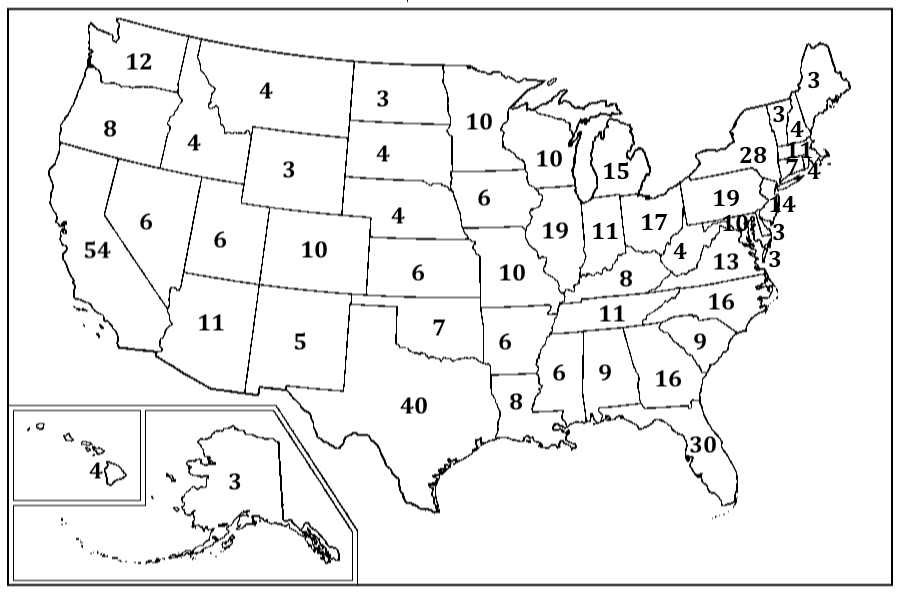
The United States elects a President every four years through the “electoral college” – a 250-year old undemocratic system that has on more than one occasion resulted in the election of a President who does not get the most votes nationally. The most recent example is the 2016 election, in which Hillary Clinton received 3 million more votes than Donald Trump nationally, but Trump won by 304 to 227 votes in the electoral college.
There are a total of 538 votes in the electoral college (EC), and whoever gets at least 270 EC votes wins the election. Each state (plus DC) is apportioned a certain number of votes according to the number of Senators that state has (2 each) plus the number of Representatives (anywhere from 1 to 50 or more, depending on population). In most cases, whoever gets the most votes in any one state gets all the EC votes for that state.
This is what makes the electoral college undemocratic, because a candidate could win massively in California, for instance, with millions more votes, and at the same time lose by a whisker in a number of other states. In California, that candidate would get the total EC votes for that state, but no more, while getting 0 EC votes in each state that they narrowly lost.
This is roughly the situation we have today, since Harris is way ahead in many of the biggest states, like California, New York and Illinois, while being only marginally behind in other big states like Texas, Florida, Georgia and North Carolina. If we counted just the EC votes from just those 7 states, Harris would have 101 EC votes to Trump’s 102, even though by popular vote, the tally from those 7 states might look more like Harris with 32 million votes vs. Trump with 25 million.
Each 10 years, the votes are re-apportioned according to population changes, so in 2024, for example, Texas gets two more EC votes than in 2020, while California and New York each get one less. The map above shows the number of EC votes for each state.
Why vote swapping makes sense: Since whoever gets the most votes in any state wins all the EC votes for that state, they only need one vote more than the other candidate to win that state. Every vote additional to that one vote more is wasted. It is not counted at all toward the election of President.
So when it is a virtually foregone conclusion that one candidate or the other will win that state and get all the EC votes for that state, it is far better to vote third party and use your vote as a message to both candidates than to simply throw it away by adding to the total votes for one candidate who is going to get all those EC votes anyway.
